#crime & court is emotionally exhausting to write
Photo

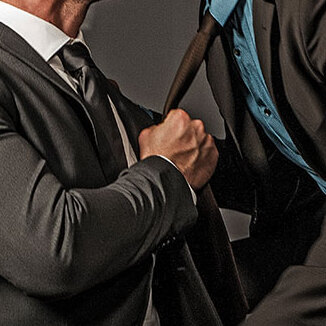
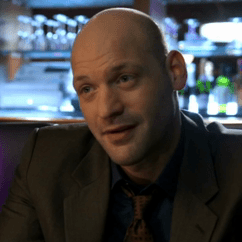
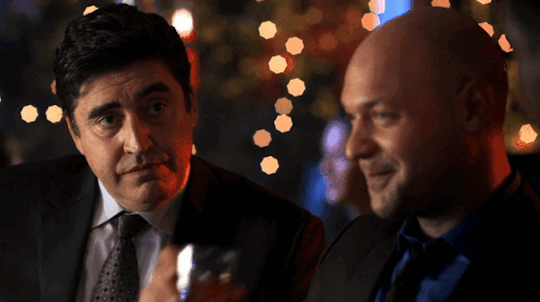
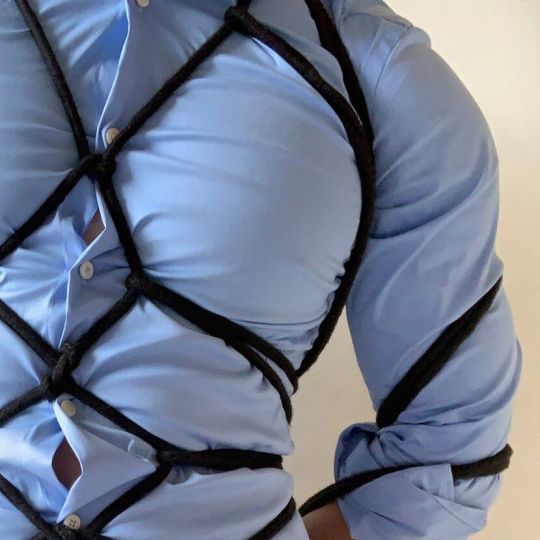
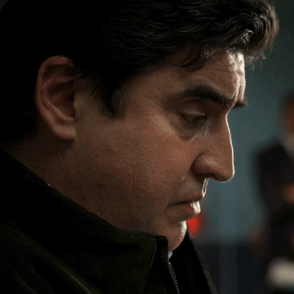

#alfred molina#ricardo morales#corey stoll#tomas jaruszalski#law & order: la#series: 12 Hours#i need some visual inspiration#disclaimer: still images aren't mine#i found them on google#not sure if I need to explicitly state that#but there ya go#crime & court is emotionally exhausting to write#but I think it's worth the pay off#also I don't know how to do moodboards#but they greatly appeal to me#also i found a nice reference image for Sam#but i don't want to ruin the readers' mental image
15 notes
·
View notes
Note
Hi, can you share a snippet? 🙏🏿
Absolutely! I'm so eager to just share the story already even though I still have a lot to write.😅 I have so many different options for snippets that's it starting to get hard for me to pick so if anyone would like another snippet please help me narrow it down by requesting a fluffy or angsty snippet (or one from any of the endings your most excited for) I'm so thankful for your continued support and just want to make sure that when you request a snippet I'm giving you something that you're eager to read.
Anyway I'm basically writing nothing but angst right now so take an angsty snippet.
*******************************************************************
He changed, then followed the sound of the t.v, into the living room, where his father sat waiting. The man smiled when he caught sight of him. “There’s my boy.” He beckoned Miles over. He obeyed, his head bowed, unable to meet his fathers eye as he sat beside him on the couch. Pa looked at him like a fat cat with a rat, reaching out a hand to tuck his son’s curtain of hair behind his ear, exposing his face. “I made you a little something to eat. I figured we could watch a little t.v before heading to bed. How’s that sound?”
“Sounds good Pa. Thank you.” Popcorn, apple slices, and a batch of chocolate chip cookies was laid out on the coffee table. Miles stayed still, his eyes vacant and glassy. Pa sighed, grabbing a bowl of the snacks and plopping them onto the boy's lap. Slowly, Miles picked up a cookie and took a small bite as his father watched him intently. Then, Pa slung an arm around his son pulling him into his side. The tired, emotionally drained boy, sunk into the touch, laying his head onto his father’s shoulder.
“I had your uncle put together a little somethin’ for us to watch.” Pa pushed a button on the remote, making the DVD player whirr to life. Dread immediately pooled in Miles' stomach, the familiar faces of his home town's local news anchors appearing on screen. He knew before a word was even said exactly what this was.
“Our top story tonight. The kidnapping of a local teen has shaken a community to its core. We go now, live, to the scene of the crime.”
“Thank you Jeana. The search is on after Miles Socorro, or Spider as his friends and caretakers call him, went missing, and has been the suspected victim of a kidnapping perpetrated by this man...” The newscast cut to a picture of his father dressed in his military uniform, “Marine colonel Miles Quaritch, Miles Socorro’s estranged father.”
The video cut again, to Norm, whose eyes were noticeably red. “Colonel Quaritch is a very dangerous man. He lost custody of his son nearly fourteen years ago, after he was arrested on attempted murder. He was judged to be mentally unstable by a court of law, and thus unfit to be a father. That hasn’t stopped him from repeatedly stalking Spider through the years and now…”
The footage cut before the breakdown that was so obviously about to happen. The newscaster continued, “Spider’s current foster placement, the Sully family, had this to say.”
Jake and Neytiri came on, looking very somber. Their hands were clasped by Jake’s shoulder. He was rubbing comforting circles into his wife’s hand with his thumb. “Please if anyone has any information, any at all, please contact the police. Even the smallest detail could help us bring Spider home…”
Pa scoffed as the news cast was seemingly cut short. “Does that seem like a family desperate to have you back.”
Miles prayed to Eywa for strength. Seeing his kidnapping from this perspective, stirred up more emotions than he could even name. He was so mentally exhausted that he just couldn’t play this game anymore tonight, but knew that he had no choice. “They look…sad.”
“Pfff…Please, that’s all for show. They didn’t say anything the news anchor couldn’t have said. Call the police if you have any information. Real stirring stuff there.” Miles replayed the scene in his mind, Jake and Neytiri’s calm demeanors, Jake’s even tone as he spoke, their faces perfectly composed… “you know what I did when you were taken from me? I fought. I raged against the people that broke into our home and ripped you straight out of my arms. It took a whole gang of police officers to hold me down as you were stolen from me. Even after you were long gone I fought to get back to you, I beat the bars of my jail cell demanding to know where you were, I screamed myself hoarse. Does it look like they’ve been doin’ anything like that son?”
“No.” Miles' voice came out as barely a whisper. He knew how desperate his father had been to get him back, and he had vaguely known that he was taken right from their home, but his father had never spoken of that day with so much emotion before. Even now so many years later it clearly infuriated him to his core.
“Now imagine for me. What do you think those two would do if something happened to one of their kids? Let’s say their oldest son. What’s his name?”
“Neteyam.”
“Neteyam. Something awful happens to Neteyam. He’s taken, or injured, or hell even murdered just like your mama. What do you think they’d do.”
Neytiri would eviscerate the idiot who dared to lay a hand on her son. Miles knew that for a fact. And he also knew that she wouldn’t do the same for him. Pa read his expression like an open book, giving him a sad smile and an affectionate squeeze. “There now, your startin’ to get it.”
Miles reached his breaking point for the second time that day, bursting into tears. Pa wrapped both his arms around him, letting his son sob onto his chest, while he rubbed his back. “Papa.” Miles said through choked cries, “can we please stop. Please. I can’t do this anymore. I just want to go to bed.”
Pa gave him a soft smile bringing a hand up to pet his hair. “No can do son. You need to learn your lesson.” Miles cried harder, hanging his head in defeat. Pa hit play on the video, turning Miles back towards the screen as the national news came on. “The search is on after a D.C teenager was kidnapped by his own father…..”
#miles spider socorro#miles quaritch#spider socorro#colonel miles quaritch#avatar fanfiction#cabin in the woods#my fanfic
16 notes
·
View notes
Note
A murder happens and s/o tries to save the victim but fails and gets injured in the process. I want to see how that'll affect Gumshoe, Miles, and Simon when investigating and how they'd treat the prime suspect and culprit (prime suspect doesn't have to be innocent btw). Maybe some light hurt/comfort between them too when the case is over.
For the sake of writing, Reader was injured to the point of being rendered unconscious for the initial day (an investigation day!) and doesn’t come to until late into the first trial day. For Gumshoe’s and Edgeworth’s, they serve as a decisive witness in terms of testimony on day two after coming straight to the courthouse from the hospital. Prime suspect is the culprit in each one! Wanted to keep these consistent. ^^Hope you enjoy, pal! Miles and Simon are under the cut!
Dick Gumshoe.
Detective Gumshoe is very protective of his friends and especially so of his romantic partner.
So when a bad guy not only kills somebody, but hurts his partner in the process, too? It’s personal, pal.
Will not rest until the person who did such a terrible thing is locked up and you’re safe again.
He uses his height and stature to try and intimidate the culprit because he’s convinced of their guilt (all of the evidence points to them, after all!). Additionally, he’ll be harsher on the subordinate officers on scene, as well, yelling at them and ordering them around as if it was second nature to him.
He’s just very much on edge and uncharacteristically prone to snapping, like a certain K-9 unit. The junior officers steer clear of him as much as possible when he’s like this, not wanting to get yelled at.
Edgeworth has to scold him and remind him that he needs to keep his act together if they want to get this villain locked up.
This poor man gets absolutely no sleep as he juggles between spending as much time with you in the hospital during your short stay there.
He looks exhausted and worn down whenever he’s at the hospital, just holds onto your hand like it’s his lifeline.
After he gets the call that you’ve woken up, he rushes down to the hospital after picking up a bouquet of discounted flowers. Cries upon seeing you really are all right and scoops you into a hug, careful of your injuries (but not mindful of the bouquet, which he crushes, oops).
Once the conviction is handed down, Gumshoe sweeps you out of the courtroom and back home.
He is very big on comfort cuddles and will probably take the first day afterwards off just to spend it sleeping and cuddling in bed with you.
Will make you weenies and attempt to make any of your other favorite foods (or try to! they’re always made with love!).
He picks you up from work and is just always escorting you places, wanting to be there for you in case something like that ever happens again. His worry slowly eases as things stay normal, though, but he’ll keep up with it as long as you need to feel safe.
Probably encourages you to maybe take a self-defense class or at least let him teach you some moves from police training for some peace of mind in the future.
Miles Edgeworth.
Prosecutor Edgeworth remains focused on finding the truth, as always, but with a greater urgency because he needs to get to the bottom to what happened to you.
Is thoroughly convinced that the defendant committed this heinous crime, hurting you in the process, but he does his best to not let his biases color the investigation.
The more evidence he finds, the more convinced he becomes that the police have the correct individual.
And thus, the colder he becomes toward the suspect in question as he engages them in games of logic. Trying to find holes in their narratives and logic.
Despite looking like he’s keeping it together, those close to him can tell that he’s having a rough time. The furrow between his brow is deep and he tends to stare off, lost in thought more regularly.
As much as he hates not being able to be with you in the hospital, he needs this investigation to be overseen with great care.
When he is there the first night, he simply stares at you feeling utterly helpless.
Once the first day of the trial is finished and he checks his phone to see a notice that you’ve woken up, he makes his way to the hospital posthaste.
The sentimentalities come after he makes sure you are absolutely okay and hears what happened from you. Presses a gentle kiss to your brow as he brushes some hair out of your face, promising you that justice will be served.
He makes it very clear to the defense that there will be no badgering of the witness tolerated, given the fact that you came directly from the hospital to testify. He’s not happy about it, but a decisive witness is the key to winning this case.
Afterwards, the two of you go home together and he just… holds you. It takes you a while to realize it, but he’s crying. It’s a call that’s too close for comfort, another loved one potentially being ripped away from him. Leaving him behind. Unbearable.
Dotes on you afterwards, despite his job taking such a high priority in his life he’ll make as much time for you as you request.
Touchier than usual for a time afterwards, it’s reassuring to the both of you. You may even be able to squeeze out a bit of PDA from him.
Will scold you at any hint of self-sacrificial behavior going forward, not wanting you to risk yourself like that again.
Encourages you to get therapy and recommends you to his therapist, wants to make sure that you heal from the trauma and is there for you every step of the way.
Simon Blackquill.
Simon has suffered too much loss, he takes this crime against you. Because he could have lost you, too. And that’s unacceptable.
Really, he takes this whole ordeal very hard personally. Protecting the ones he loves is one of his most deeply held and important core values.
He feels like he’s deeply failed you (the one he loves) on that front.
Given the suspect’s psychological background and the evidence, he’s quick to figure out that this is, indeed, his culprit.
You think he’s bad in the courtroom? He’s hell in the interrogation room. Psychological manipulation and intense, drawn out interrogations to try and break down the suspect or trick him into confessing or slipping up.
He is merciless and all steely edges, there is no ‘good cop’ to save this cretin. The threats are less empty than usual…
Enjoys making them squirm a bit too much, it’s honestly a way for him to take out his own frustration.
By the time you’ve come to, the case is already closed. A single day in court is all it took. He spent the first day in interrogation, but doing so allowed for him to be there for you consistently not long after.
Simon’s by your side, arms crossed over his chest as he stares off into space—lost in thought. He doesn’t notice you’re awake immediately and you get to see that he’s lost in thought.
He looks like hell. He’s got bags under his eyes and the stains on his face seem more pronounced than before.
After the nurses and doctors run their tests, he’s quick to hold onto your hand once you’re alone once again.
“Tsk. Don’t do something so brainless ever again. I won’t forgive you if you do.”
You both know he would’ve done the same in your situation though. And you sense there’s some underlying meaning behind his words that isn’t directed at you.
He becomes like a shadow afterwards, a bit too reminiscent of an overbearing mother hen with her chicks. However, he’s simultaneously emotionally distant. It’s a strange, contrasting combination and it can be confusing to navigate with him.
If you weren’t learning swordplay with him before, you are now! He passes on his iaijutsu technique onto you.
Tries to find the humor and encourages you in his own snarky way. It’s familiar and comforting in its own and he lives for seeing more of your smile.
Takes a few days off work to spend time with you, has his arms wrapped around you as much as he can and treats you to as much comfort food takeout as you want. It’s the least he can do...
Athena conducts a couple of therapy sessions with the two of you. She’s the only person he trusts enough with you and his own feelings. It really helps clear up that emotional distance element.
#miles edgeworth x reader#miles edgeworth imagine#miles edgeworth#dick gumshoe x reader#dick gumshoe imagine#dick gumshoe#simon blackquill x reader#simon blackquill imagine#simon blackquill#x reader#self insert#reader insert#my writing#headcanons#hurt/comfort#injured headcanons#gumshoe's basically like how he is in 1-4! protecc...#Anonymous#et queue justice?
300 notes
·
View notes
Text
News24.com | Dan Kriek: 10 years after murders of Attie, Wilna and Wilmien Potgieter, we must join forces again
Bikers ride to Parliament to protest against farm killings on Mandela Day.
PHOTO: Gallo Images/Jacques Stander
Forces need to be joined as they were 10 years ago when the Potgieter family was murdered in order to fight the scourge of violent crime, writes Dan Kriek.
The spate of horrifying farm murders during the past few weeks had me thinking back to Monday morning, 6 December 2010: I am sitting in the Magistrate’s Court in the small Free State town of Lindley awaiting the first court appearance of six men who allegedly brutally murdered the Potgieter family on their farm near the town just a few days earlier.
Attie Potgieter was stabbed about 150 times with a garden fork, knife and panga. His wife Wilna and their two-year-old daughter Wilmien were attacked with a panga and shot. They were robbed of cash and belongings worth R20 000.
There is an eerie silence in the courtroom as we await the start of the proceedings. The mood is solemn. We are all trying to come to terms with yet another shocking farm murder. But this one is different than the others I’ve thus far had to deal with as vice president of Free State Agriculture. The cold-blooded murder of two-year-old Wilmien Potgieter sent reverberating shock waves through the country.
I’m seated next to local farmer leaders Llewellyn Angus and Dirk van Rensburg. Outside the court a huge crowd of farmers, onlookers and protesters from across the political spectrum, including the AWB, are assembled. Present in court is Dr Pieter Mulder, Deputy Agriculture Minister and Freedom Front Plus leader at the time, and Maki Mokoena, local chairperson of the ANC Women’s League (ANCWL).
Outcry
The court appearance of five of the suspects (the sixth suspect is a minor) only takes a few minutes in an anti-climactic contrast to the massive outcry of rage and horror gathering momentum outside the courthouse.
Now it was time to address the farmers outside. But what does one say? The anger of a community knows no boundaries when murders like these happen, and people want to see justice served and to feel public acknowledgement of their pain, coupled with the reassurance that something will be done about it.
As I think back, I clearly remember the tension and emotion, but I can’t remember my exact words that day.
I tried to reassure the farmers that organised agriculture will leave no stone unturned to address the scourge of farm murders and asked everyone to remain calm. I then thanked the ANCWL for their presence. I deemed it critically important that the whole of society condemned the Potgieter murders. I reiterated that all murders must be universally condemned, regardless of who commits them or who the victims are. I found it extremely difficult to address the crowd of farmers and was keenly aware that not everyone shared my views about the presence of the ANCWL.
As I walked to my bakkie to head home after an emotionally exhausting day, I stopped to thank Mokoena and the almost twenty strong delegation of the ANCWL for their support and for their very strong public stance against the murders.
I told her that I think the ANCWL is the embodiment of the mothers of our nation and therefore have a critical role in condemning violence against women and children – and in this case the murder of a whole family. The ANCWL kept attending the court hearings in the Potgieter case and even requested the judge not to afford bail and to hand the murderers of the Potgieter family the maximum prison sentence.
Before that first court appearance in 2010, I kept wondering how to deal with the public outcry that dominated news headlines and a situation that had the potential to polarise society along racial lines.
I believe we need to address violent crime with collective intolerance and without polarisation.
Scourge
I phoned lifelong friend Sisi Ntombela, current premier of the Free State, who was the MEC for Social Development at the time. I asked her for public support against the brutal Potgieter murders. She immediately mobilised the ANCWL to take a public stance against the murders.
I called Premier Ntombela this past week to reflect on the Potgieter murders.
She reiterated why she publicly supported the community of Lindley: “Farm murders, whether white or black is a scourge that all of us have to fight. Violence knows no colour. As the premier of the Free State I want to make a passionate plea to all Free State people to stand together in condemning this scourge.”
The Potgieter murders caused an outcry across South Africa.
Churches and faith-based organisations held meetings to pray for a solution for violence in the weeks following the murders.
I remember one particular scripture reading in commemoration of the Potgieter family as a message to all South Africans. It was from John 1:5: “The light shines in the darkness, and the darkness has not overcome it.”
Ten years on, have we made any progress as a nation in dealing with the trauma that violent crime unleashes in our collective lives?
Violent crime is tearing our communities apart. It affects all South Africans.
Join forces
We see regular media releases and public protests expressing our anger about all the senseless violence. I’m convinced we won’t succeed to end this scourge until we join forces in condemning all murders. All murders are equally destructive and senseless. Sadly, we have not reached the point where we can say that an injury to one is an injury to all. We are, to a large extent, still burying our own dead.
We need government to publicly demonstrate how the resources of the country will be applied to keep us all safe from ruthless criminals.
The Potgieter murders stand as stark reminder of the destructive force of violent crime in rural South Africa. But if one looks beneath the surface at 6 December 2010 at the Lindley Magistrate’s Court, the real solution on how to deal with our collective trauma was on display.
“The light shines in the darkness, and the darkness has not overcome it.”
– Dan Kriek is a cattle farmer from the north eastern Free State. He is a past president of Agri SA.
*Want to respond to the columnist? Send your letter or article to [email protected] with your name, profile picture, contact details and location. We encourage a diversity of voices and views in our readers’ submissions and reserve the right not to publish any and all submissions received.
Disclaimer: News24 encourages freedom of speech and the expression of diverse views. The views of columnists published on News24 are therefore their own and do not necessarily represent the views of News24.
The post News24.com | Dan Kriek: 10 years after murders of Attie, Wilna and Wilmien Potgieter, we must join forces again appeared first on BBC BREAKING NEWS.
from WordPress https://bbcbreakingnews.com/news24-com-dan-kriek-10-years-after-murders-of-attie-wilna-and-wilmien-potgieter-we-must-join-forces-again/
0 notes
Text
Weinstein Trial: Inside Deliberations That Lead To Harvey Weinstein’s Conviction
Andrew Emroch, University of Virginia Class of 2018
March 11, 2020

Manhattan: Harvey Weinstein was convicted of rape and criminal sexual acts. Weinstein was convicted of third-degree rape and a first-degree criminal sexual act on February 24, 2020. However, he was found not guilty on three other counts, which include two serious charges of sexual assault. A first-degree criminal sexual act is punishable by a minimum of 5 and a maximum of 29 years in prison. [1]
Harvey Weinstein’s downfall due to sexual misconduct made international headlines as he is a renowned film producer. Weinstein’s trial, which was accorded much publicity, saw 6 women testify claiming that he sexually assaulted them [2]. As 12 jurors sat around a wooden table in a small room in the court building, a panelist was writing the charges against Weinstein on a small whiteboard using a marker pen. One juror recalled that the 12 jurors were never unanimous at the beginning. Every juror was given a few minutes to unpack the events leading to the conviction.
The series of events at the Manhattan Criminal Courts Building marked the downfall of a great film director. The Hollywood mogul’s conviction brought to an end a long period of whispered accusations since 2017. Several women accused him of sexual assault and harassment and this led to a global movement, the #MeToo movement. The accusations brought to light the casting couch practice in Hollywood and women’s long sufferings as they were abused in their workplaces.
Three Jurors’ Revelations
Three jurors were interviewed to shed more light on how the panel convicted the 67-year-old Oscar-winning film producer of the sexual offenses. They also explained how the man was acquitted of two other serious counts of sexual assault. One juror was quoted saying how it was stressful and some of the jurors got sick as the debate in the room was mostly civil. He went on to say how they were confronted with a difficult situation of analyzing their morality under the law in a room with other 11 strangers.
The jurors requested anonymity during the interview. They declined to give an account of the positions taken by each juror or the particular disagreements that ensued in the room. However, they discussed how the panel arrived at the final decision. The panel heard that two main accusers – Jessica Mann, 34, and Miriam Haley, 42, maintained intimate relationships with him after the alleged attack and they later had sex with Mr Weinstein. However, these facts were given little weight by the panel.
The jury, composed of five women and seven men, narrowly focused on whether Mr. Weinstein violated the law at the time of the alleged attacks. Statements from three other accusers who were called to shed light on Mr. Weinstein’s behavior pattern were given little weight too. Another juror explained how two witnesses’ statements were similar in two ways. The witnesses said the same thing. Their statement indicated that sex acts happened the same way. These similarities lent credibility to the two witnesses.
Mr. Felsher, a former colleague and writer described Mr. Weinstein as a “sex addict.” He added that Mr. Weinstein had a high appetite for women. He termed it as “mildly voracious appetite.” The juror added that “this did not help his case at all.” The jurors admitted that they considered the importance of the trial as related to the #MeToo movement but they focused on the evidence presented in court. The deliberations lasted for 26 hours, thus exhausting them emotionally and physically.
The jury table was filled with snacks – donuts, chocolates, and coffee – after three days. The jurors were held up during deliberations and were unable to take a lunch break. They resorted to ordering from a deli. They only had short breaks to smoke, get some fresh air or just to venture outside. Their timelines were drawn on an oversized pad that was fixed on a second whiteboard. The partial verdict was scribbled on the pad and later discarded it for fear that it might leak.
The jurors agreed on a system on the first day. They took the time to understand the legal definitions of all the charges. They sought the judge’s explanation of the law and legal definitions of some terms such as forcible compulsion and consent. The panel sought answers for two questions: Did the assault occur? Did it meet the legal definition of a crime? They listened to all the 28 witnesses presented by the prosecution team. They examined the ongoing relationship and viewed Mr. Weinstein’s naked photo that was presented to them. One juror was quoted saying “it was one instant we were analyzing, not a relationship.”
Miriam Haley was found credible
Ms. Hailey's testimony convinced the panel that indeed Mr. Weinstein sexually assaulted her. Ms. Hailey was an assistant producer on Mr. Weinstein’s “Project Runway” show. One juror said that Ms. Hailey convinced them because she remembered specific details like wall drawings in Mr. Weinstein’s Manhattan Loft room. She recounted how he held her down and forced her to perform oral sex as she protested. The alleged assault happened in 2006. The jury requested to see the room’s floor plan and later invited her to testify again. They confirmed that her testimony was credible as it corroborated the evidence.
Jury doubted Annabella Sciorra's Testimony
Annabella Sciorra had alleged that Mr Weinstein raped her when he stormed into her apartment in the 1990s[3]. The charge was indicated as a predatory sexual assault charge by the prosecution. The juror sought to understand whether Mr. Weinstein only raped Ms. Sciora or he also assaulted her. Some jurors cast doubts on the account as it did not match the pattern and context of the other assaults.
The other accusers were young women who were lured by Mr. Weinstein to meetings in his apartment or hotel room with the prospect of being given jobs. However, Ms. Sciora was a seasoned actress who had accompanied Mr. Weinstein to a dinner party. However, in her testimony, she indicated that she was given a lift by Mr. Weinstein who later barged her in when she was waiting outside his apartment. One juror said, “That’s not his M.O.” It was not easy to eliminate the doubt because her testimony had a lot of confusing information. The panel could not help but dismiss the charges
Complications in Jessica Mann’s Case
Finally, the panel focused on Jessica Mann’s testimony. Her account indicated that they had a long-time relationship with Mr. Weinstein which involved masturbation consensual oral sex[4]. Ms. Mann referred to him as a “pseudo father” and a “soul mate.” However, she indicated that Mr. Weinstein raped her in 2013 at a hotel in Manhattan. She had invited Mr. Weinstein for a meeting after which he rented a room.
The jury spent about two days examining her testimony. Some jurors were concerned about her long-time relationship with Mr. Weinstein. She had indicated that she had oral sex with him in 2016. She also admitted that they were exchanging flirtatious and friendly messages with him. She also alleged that he raped her a second time; six months after the first incident.
One juror explained to them that having a relationship does not preclude an individual right’s to withhold consent[5]. The panel was convinced that she did not consent to the sexual acts in the incidents. However, since no force was used, the panel decided that it was third-degree rape. Anxiety was high in the last few days of deliberations. The jurors knew they were about to finalize their verdict. They requested all the people in the room to leave as they made their final decision.
One juror liaised with the foreman to review the final decisions to ensure that the split verdict will be announced properly. The bell was rung to announce they were all ready to deliver the verdict
________________________________________________________________
1. Adams-Clark, A. A., & Chrisler, J. C. (2018). What constitutes rape? The effect of marital status and type of sexual act on perceptions of rape scenarios. Violence against women, 24(16), 1867-1886.
2. Sand, Nardine (2017). "The full list of Harvey Weinstein accusers includes fledgling actresses and Hollywood royalty". Los Angeles Times. Archived from the original on October 21, 2017. Retrieved March 4, 2020
3. Associated Press (2017). "Annabella Sciorra alleges she was raped by Harvey Weinstein". The Guardian. Archived from the original on October 28, 2017. Retrieved March 4, 2020
4. Ransom, Jan (2020). "Jessica Mann, Weinstein Accuser, Breaks Down in Tears at Trial". Retrieved March 4, 2020 – via NYTimes.com.
5. Jozkowski, K. N., & Peterson, Z. D. (2014). Assessing the validity and reliability of the perceptions of the consent to sex scale. The Journal of Sex Research, 51(6), 632-645.
Photo Credit: David Shankbone
0 notes
Text
‘They’re Screaming for Help.’ See Drawings From Children Stuck in Mexico as They Seek U.S. Asylum
“America, where they didn’t let me in,” writes 11-year-old Jose from Honduras in Spanish next to a picture of mountains and trees on a canvas in blue, green and brown colors. He also drew a river — the Rio Grande that separates him from Brownsville, Texas, where his family hopes to claim asylum. “La tierra prometida,” he writes. “The promised land.”
Jose is one of at least 1,450 migrants who are living in a tent encampment on the streets of Matamoros, a city in the Mexican state of Tamaulipas, as a result of the Trump Administration’s “Remain in Mexico” policy. Dozens of children in Matamoros drew their experiences as part of an art project, photos of which were provided exclusively to TIME by Dr. Belinda Arriaga, an associate professor at the University of San Francisco who specializes in child trauma and Latino mental health. She traveled to Matamoros Oct. 19-25 as part of a group of volunteers who provided aid and psychological care to migrant children and their families.
Tracing the Journey
Migrants from the caravan in Tijuana describe their journey north from Central America to the U.S. border.
In order to protect the identity of the children, TIME has covered some identifying information in the drawings.
“Their drawings become their voice,” Arriaga adds. “When they started handing me one-by-one their pieces, it was really jolting to see what they were drawing… the drawings help us understand the trauma that this country is inflicting on them.”
Arriaga has traveled from San Francisco to Brownsville and McAllen, Texas, six times to work with children released from family detention since the height of family separation under the Administration’s Zero-Tolerance policy. Arriaga provided similar drawings to the American Academy of Pediatrics (AAP) this summer made by children who depicted themselves in cages after being released from a Customs and Border Protection family detention center in the McAllen region.
This month, on her seventh trip to the Rio Grande Valley region, Arriaga was one of 24 members of the Bay Area Border Relief (BABR) organization who traveled to Matamoros. Many volunteers provided donations, food and therapy to more than a thousand people sleeping in tents or outside at a plaza near the port of entry. Arriaga worked with children who have been waiting in Mexico under the Department of Homeland Security’s Migrant Protection Protocols(MPP) — also known as “Remain in Mexico” — which requires asylum-seekers to wait in Mexico while their legal case for asylum progresses. Arriaga participated in group sessions with the children, including sessions that allowed children to draw and express what they’re feeling and what message they wanted to share with the world. About 40 children and some parents participated, Arriaga says.
Dr. David Martinez, a clinical psychologist and assistant professor at the University of San Francisco, was also on the trip and provided one-on-one therapy to children there, an effort he called “psychological first-aid.” The children were clearly traumatized, he says, and his own experience and studies have shown him that it’ll take years before the effects of the trauma becomes obvious.
“I do see a lot of resilience, but there’s only so far that can go if things don’t change,” he says. “What happens in adolescence, especially early on in childhood, kind of defines your life. Being exposed to stress, trauma, adversity… it can lead to a lot of poor mental health outcomes or physical health outcomes.”
Arriaga says her encounter with the children in McAllen over the summer was ultimately hopeful. “There was fatigue and exhaustion, yes, but there was hope,” she says. “But with these children [in Matamoros], what we walked away with was a complete sense of desperation… they’re screaming for help.”
Seven-year-old Ivone drew a picture of herself inside of a cage near the river. Her tía waits for her on the other side, standing next to an American flag. An unidentified 7-year-old drew a similar picture. “It’s an emotional trauma that is not easily going to be erased,” Arriaga says. “What they’re living with and what they’re enduring is something that is going to emotionally impact them for a long time.”
Many of the children are from Central America. TIME for Kids recently traveled to Honduras to interview children and families about their lives there. Many children who remain in Honduras have a family member who has migrated to the U.S. or know other children who have made the journey.
Young asylum-seekers in Matamoros like Jose, Genesis and Ivone sleep in tents that have been donated to them, and rely on food that volunteers from both sides of the border attempt to bring them on a daily basis, according to seven volunteers who have been on the ground who spoke to TIME. These volunteers say asylum-seekers go to the restroom in portable bathrooms volunteers have rented using donated money while sanitary napkins, clothes, diapers, other supplies and medical care are also provided by donation. Shower tents were recently built where the migrants use a bucket of water and a cup to bathe. Many also jump in the Rio Grande to wash themselves and their clothes. A team with Doctors Without Borders (MSF) in Matamoros has also documented cases of diarrhea, hypertension, diabetes, psychiatric conditions and asthma amongst the asylum-seekers. MSF has conducted at least 178 medical consultations over the course of three weeks this month, 58% of which were with children under 15 years old, according to the organization.
A spokesperson for the city of Matamoros did not immediately return a request for comment. Earlier in October, government official Enrique Maciel, a representative for the Matamoros Delegation of the Tamaulipas Institute for Migrants, a state-run agency, told reporters that the asylum-seekers are not the responsibility of the Mexican government, but that the city is committed to providing shelter for public health and safety purposes.
At night, with no way to lock their tents, migrants are susceptible to robbery and other crimes against them, including rape and kidnapping. The U.S. government has issued a travel advisory for the state of Tamaulipas, urging Americans not to go there. There’s no law enforcement oversight, save for the military and Customs officials who guard the port of entry nearby. Volunteer lawyers from all parts of the country also frequent the area, looking for opportunities to represent families they believe should be excluded from MPP and helping them fill out asylum documents that the U.S. government provides in English.
“These people are prey to anybody who wants to come and take advantage of them,” says Lilli Rey, the founder of BABR. She and her daughter were also a part of the recent trip to Matamoros. “For the United States to treat these human beings like this — we should all be ashamed.”
Matamoros doesn’t have the infrastructure to house so many people in shelters, says Erin Thorn Vela, an attorney with the Texas Civil Rights Project based in McAllen. “At the beginning what it looked like was an attorney going out on Saturday night and saying ‘look, gather around me, I can tell you how to fill out an asylum application,'” she tells TIME.
The city of Matamoros has also attempted to create a shelter, the opening of which was cancelled. The cancellation followed criticism its location far from a port of entry would expose asylum seekers to exploitation and violence, according to Andrea Rudnik, a cofounder of Team Brownsville, an organization that has provided daily meals and other resources to migrants in Matamoros since July 2018. A local recreational center is being converted into a facility that could shelter up to 300 of those waiting for their asylum cases to be processed.
Customs and Border Protection tells TIME it has enrolled more than 55,000 people in MPP. Many stay near U.S. ports of entry throughout the border as a result of MPP, which was implemented in January 2019. The policy didn’t begin in Matamoros until July of this year, leading to nearly 1,450 people sleeping on the streets in that same month, according to the Transactional Records Access Clearinghouse (TRAC), a research organization based out of Syracuse University. Many of the volunteers say the number has grown significantly since July.
Many have been living at the encampment — which grew organically — since before the implementation of MPP as a result of the Administration’s metering policy, which required them to wait in Mexico and make an appointment with U.S. officials before being allowed to make an initial claim for asylum. Some migrants have drowned in the Rio Grande trying to cross the border after being told they would have to wait for months in Mexico. Organized crime in Matamoros further endangers the asylum-seekers, who the volunteers say are targeted for ransom, or offered jobs like prostitution by local gangs.
“Mexico is providing humanitarian protections and even work-authorizations to these individuals during their stay,” DHS spokesperson Matthew Dyman tells TIME in a statement. “Mexico has stated it would authorize the entrance of those returned under MPP for humanitarian reasons, in compliance with its international obligations, while they await the adjudication of their asylum claims in the United States. Mexico has said it will provide aliens with legal status to work, offer jobs, healthcare and education to such individuals according to its principles.”
The agency called MPP an answer to the “security and humanitarian crisis on the southern border,” when the policy was announced in January. Since thousands of Central American migrant families have arrived at the border to claim asylum, U.S. immigration courts have faced a backlog in processing the cases.
The Administration’s MPP policy has faced legal challenges, the most recent of which is awaiting a decision from the 9th Circuit Court of Appeals.
The slow appeals process has led volunteers on the ground to work faster and harder, says Vela, the TCRP attorney. “That encampment has been growing since August,” Vela says. It’s easily three times as large as it was before MPP, and the amount of resources has not gotten a whole lot bigger.”
BABR traveled to Brownsville this month with a U-Haul and another truck-full of donations, including clothes, diapers and Beanie Babies and teddy bears for the children. They were not permitted to drive the rented vehicles across the border, so some members of the group found a parking lot near the port of entry on the U.S. side of the border, and began unloading the supplies onto small wagons that they walked across the border one-by-one until everything was dispersed at the encampment. Meanwhile another group of the volunteers began prepping dinner for more than 1,000 people, while Arriaga and Martinez did their work with the families.
It was heartbreaking, Arriaga says, to receive the drawings from the children.
“I try to instill how special they are, and that they’re beautiful and that they’re loved,” she says. “I told each and every one of them, there are so many in the United States that care about you.”
Article Source
0 notes